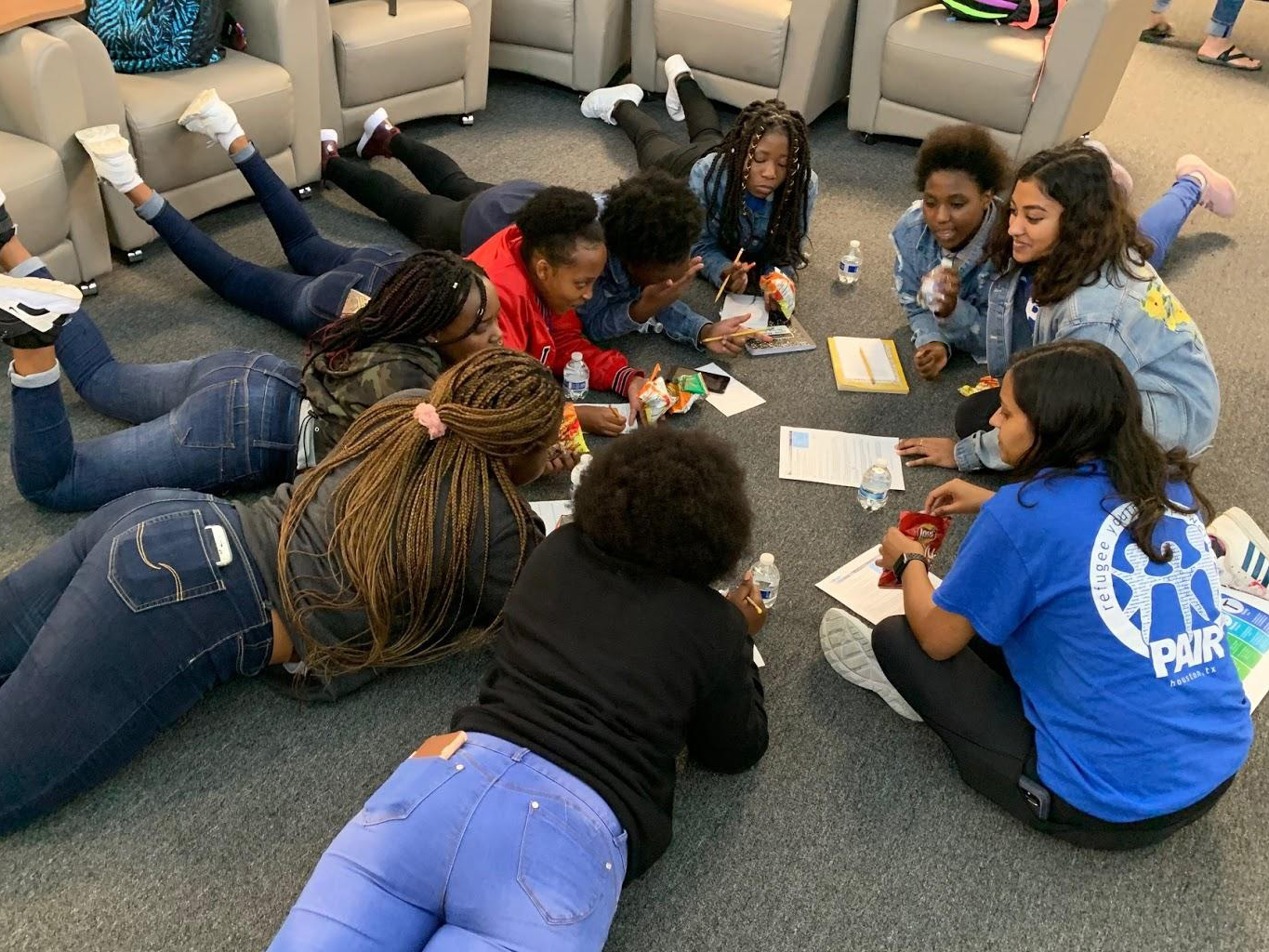
Credit: Melanie Hering
Resources for Houston refugee youth strained by COVID-19 pandemic
COVID-19 has forced the Partnership for the Advancement and Immersion of Refugees to dramatically scale back many of its direct service programs.
The Partnership for the Advancement and Immersion of Refugees (PAIR), which was founded at Rice University in 2006, serves one of the largest refugee student populations in the country. PAIR supports over 300 refugee youths each year through enrichment and mentorship programs that help students navigate the school system in the United States and adjust to a new culture. For many students in the program, PAIR is an essential resource for their educational development. But in the past year, new challenges due to the COVID-19 pandemic has challenged PAIR in serving an increasingly marginalized community.
COVID-19 has forced PAIR to dramatically scale back many of its direct service programs. During a regular school year, students often develop very close relationships to PAIR mentors and facilitators, who offer help with homework, college applications, personal advice, opening bank accounts, and driving to volunteer events.
“We want to make sure we’re providing for our students in all the ways possible, standing up for them when others won’t, and being a resource when systems and other institutions fail them,” said Melanie Hering, PAIR’s High School Program Director.
In order to continue fostering these vital relationships with young people and sustain much needed support, PAIR has been visiting families who have been financially impacted by the pandemic. According to the group, families continue to feel the strain of job losses. Many high school students started babysitting or working to support their families, leaving no time to engage in programs. PAIR staff have since conducted home visits to check in on students, deliver emergency supplies, and provide enrichment activities.
“I personally did over 300 home visits between the end of March and the end of August,” said Hering. “While I love seeing our students and it was critical to keeping our programs running, it was very exhausting!”
PAIR has also been offering virtual programming for all their students.
“At the high school level, we were able to start an Instagram page and exchange WhatsApp numbers to stay in touch with our clients,” said Hering. “But for our middle school students, it was much more difficult, as they were less likely to have social media or devices.”
Access to technology remains a big challenge for many of the kids in the program.
“The economic gaps could not be more apparent,” said Rachel O’Connell, the Global Scholars Program Coordinator at PAIR. “Students are all expected to engage in remote learning, but some don’t even have laptops, cell phones or even stable internet access. This is an issue not unique to the refugee community, but this demographic has certainly felt the brunt of these inequalities.”
The COVID-19 pandemic has also impacted the way PAIR is able to secure funding for their programs.
“Many of our funders are worried they will not be able to give us as much money as they have in the past, and some have already told us they are shifting their focus from education to healthcare and will not be able to fund our programs” said Melanie Hering.
Financial support for refugee youth has always been difficult to secure. Most U.S. government funding for refugees is intended for adults. And while refugee resettlement agencies receive funds to help new arrivals find jobs, pay rent, and settle into a new life, support for refugee youth usually only involves school enrollment. Beyond that, schools and parents are expected to address all their needs.
Despite many barriers, PAIR continues to provide students with the personalized help they need. The long-term impacts of COVID-19 on the refugee community are still unknown, but PAIR is dedicated to providing its constant stream of support.
